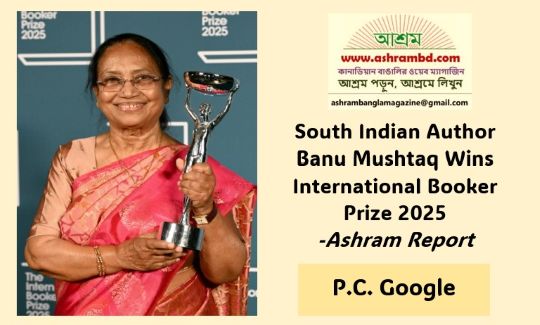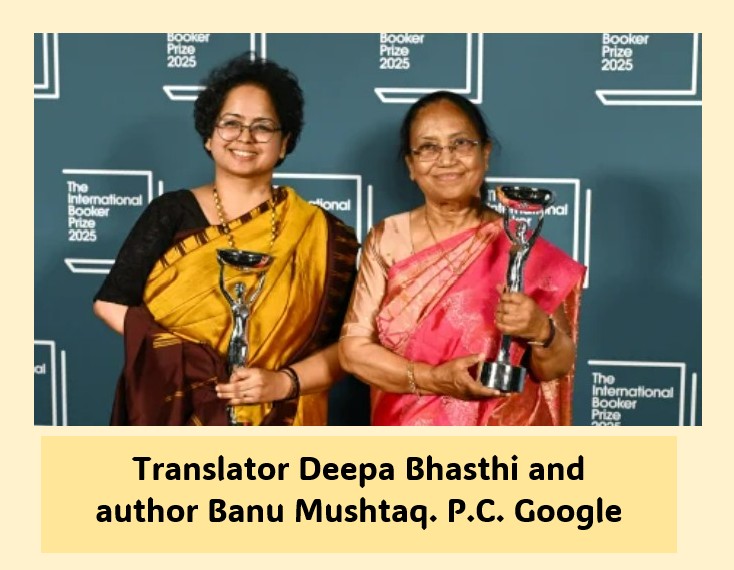South Indian Author Banu Mushtaq Wins International Booker Prize 2025

Ashram Report, May 25, 2025:
Banu Mushtaq from Karnataka made history by winning the International Booker Prize 2025 for her collection of short stories, “Heart Lamp” (Hridaya Deepa in Kannada). Written in Kannada, the stories were translated by Deepa Bhasthi. It was also the first time that a collection of short stories received this most influential award for translated fiction. The author and the translator will share the prize money of approximately £94,000 (approximately $93,000 Canadian) equally.
Written over 30 years, the collection includes 12 stories that depicts the struggles, resistance and solidarity, particularly of Muslim women and the Dalits in Karnataka. On commenting on the book, the Chair of the judges, Max Porter, said: “Heart Lamp is something genuinely new for English readers. A radical translation which ruffles language, to create new textures in a plurality of Englishes…These beautiful, busy, life-affirming stories rise from Kannada, interspersed with the extraordinary socio-political richness of other languages and dialects. It speaks of women’s lives, reproductive rights, faith, caste, power and oppression. This was the book the judges really loved, right from our first reading.”

Banu has been writing since the 1970s and active in progressive literary movements in Southern India. She has published six short story collections, a novel, an essay collection and a poetry collection and has won major awards for her works, including the Karnataka Sahitya Academy Award and the Daana Chintamani Attimabbe award. She has been a leading figure in the Bandaya Sahitya movement, or the progressive literary movement, which questions conventional literary norms and societal values. Additionally, she has been involved with the Karnataka Komu Souharda Vedike, an organization of writers and professionals dedicated to promoting communal harmony in Karnataka.
In an interview with Booker, Banu remarked: “My stories are about women – how religion, society, and politics demand unquestioning obedience from them, and in doing so, inflict inhumane cruelty upon them, turning them into mere subordinates.”
As a lawyer and activist, Banu’s unique perspective has given her a deep understanding of women’s daily struggles. Her own experiences, marked by a desperate moment when she nearly took her own life, have been compounded by the stories of countless women she has helped through her work. “The pain, suffering, and helpless lives of these women create a deep emotional response within me, compelling me to write,” she observed.
Although she has primarily depicted Muslim women characters and communities, she has consistently rejected being labeled as a “Muslim writer”. To her, she is first a Kannada writer, then a female writer, and only then a Muslim writer.
The literary circles in India and Banu’s hometown of Hassan were overjoyed upon hearing the news of her prize win. Karnataka’s Chief Minister Siddaramaiah congratulated Banu and her translator, Deepa Bhasthi. He commented that Banu Mushtaq “has raised the profile of Kannada on the international stage and brought honor to all Kannadigas … This is a time to celebrate Kannada, Kannadigas, and Karnataka.”
Ashram Report
May 25, 2025
-
en-ashram-N/G
-
25-05-2025
-
-